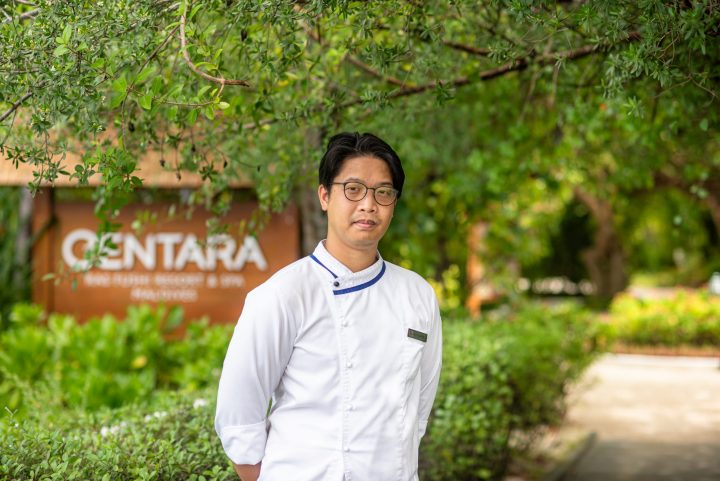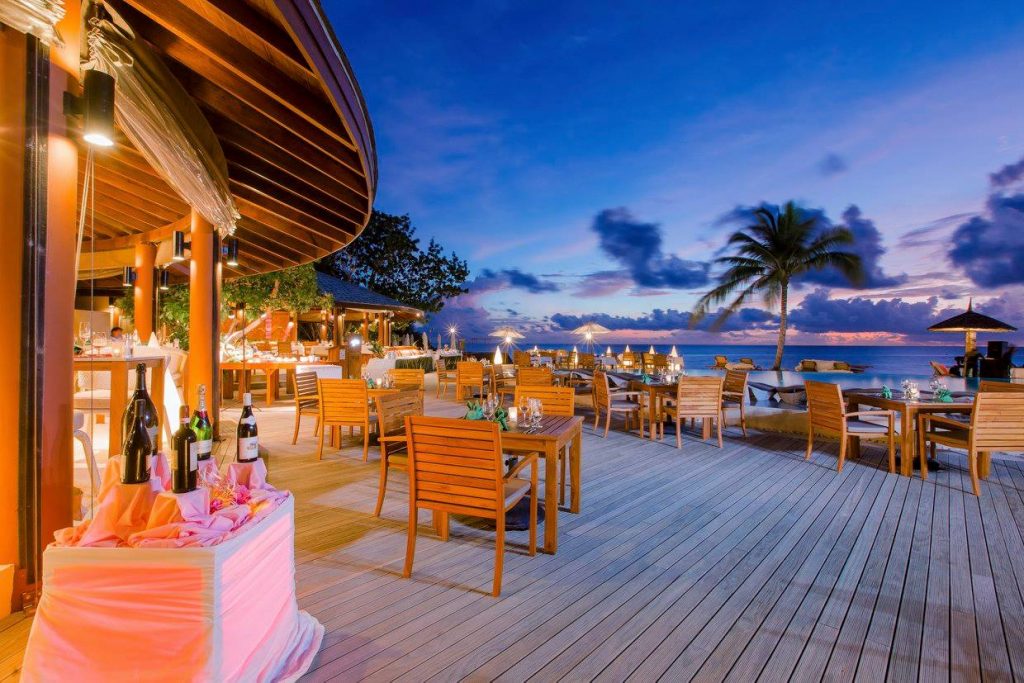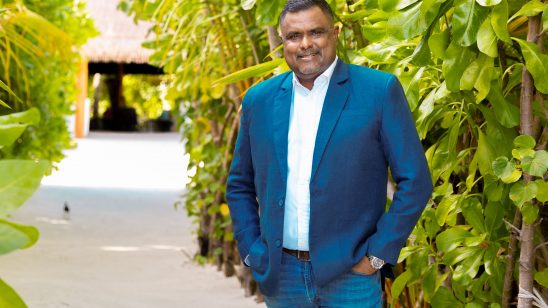
Passion and precision: Culinary journey of Werawit Yiensakunpaisarn at Centara Ras Fushi
In the heart of the Maldives, at the Centara Ras Fushi Resort & Spa, there is a culinary gem where the vibrant flavours of Thailand come alive. This is Suan Bua, the resort’s celebrated Thai restaurant, where the kitchen is led by the talented and dedicated Werawit Yiensakunpaisarn, or as his colleagues affectionately call him, Tan. As Junior Sous Chef, Werawit is responsible not only for crafting authentic Thai cuisine but also for managing a kitchen that blends precision, passion, and adaptability.
Werawit’s journey into the culinary world began in his home country of Thailand, where his fascination with food developed at an early age. “In Thailand, we have a lot of food, a lot of street food,” he shares. “When I was young, I liked to eat a lot of food. I studied why and how to make it, why it’s so delicious. That’s why I learned step by step.” This curiosity led him to pursue a degree in Home Economics, specialising in food, which laid the foundation for his culinary skills. Completing his studies by the age of 20, Werawit quickly transitioned into the professional kitchen, starting as a cook helper in a Thai kitchen at a five-star hotel. “I started with cook helper,” he recalls. “From preparing simple dishes to mastering the basics, I learned everything step by step.”
After gaining invaluable experience in Thailand’s vibrant hospitality industry, Werawit was inspired to expand his horizons. Encouraged by a fellow Thai chef he had worked with, he decided to explore opportunities abroad. “I worked with a Thai chef in a central region hotel,” he explains. “She suggested I come here. I felt the Maldives was very beautiful.” Initially, his move to the Maldives was for a temporary stint, but the allure of the islands and the chance to bring authentic Thai flavours to a new audience drew him back. Even after returning to Thailand during the COVID-19 pandemic to work at fine dining establishments, including a high-end tea house and a fine dining restaurant in Bangkok, he returned to Centara Ras Fushi to continue his journey.
Working in the Maldives, however, presents unique challenges that differ from those in his home country. Sourcing fresh ingredients, which are the cornerstone of Thai cuisine, is one such challenge. “For the Thai restaurant, it’s really hard because ingredients from Thailand are meant to be fresh, especially herbs,” Werawit says. “If they’re not fresh, the aroma and flavours don’t come through. Suppliers come once a week, so we need to adapt the recipes to the available ingredients.” A prime example of this adaptability is how the restaurant integrates local Maldivian ingredients into traditional Thai recipes. “Normally, we use young coconut from Thailand to make coconut ice cream or curries, but here we use Maldivian coconut, which has a different texture,” he explains. “We need to adjust our recipes accordingly.

Despite these hurdles, Werawit’s commitment to authenticity remains steadfast. He believes that the essence of Thai cuisine lies in its balance of flavours and meticulous preparation. “We create our own pastes and sauces, with Thai tastes, and test them until they are right,” he says. “Every Thai staff member will taste it until it’s like authentic Thai food.” This hands-on approach ensures that each dish at Suan Bua reflects the true spirit of Thailand, from the boldness of a spicy curry to the subtle complexities of a delicate dessert.
Managing a team of four in the Thai kitchen, Werawit ensures that everyone understands each role in the operation. “When we get new staff, we rotate them through different sections—salad, soup, hot kitchen, and dessert—so everyone understands every part of the kitchen,” he explains. This cross-training approach not only builds a cohesive team but also ensures flexibility during busy periods. Werawit’s leadership style is grounded in support and problem-solving. “If everybody is in the kitchen, my role is to make their work easier,” he says. “I’m there to solve any problems and ensure the team runs smoothly.”
Supply management is another critical aspect of Werawit’s role. “We manage supplies for one week,” he explains. “If we run out of an ingredient, we need to create a new dish or adapt with similar ingredients.” His ability to think creatively and maintain high standards ensures that Suan Bua remains a highlight of the dining experience at Centara Ras Fushi, even when faced with logistical challenges.

The multicultural environment of the Maldives also offers opportunities for culinary creativity. Werawit is keen to experiment with fusion dishes that blend Thai flavours with other influences, such as Indian and Arabic elements. “Thai food is special here, but we have the chance to adapt and create fusion dishes using elements from other cuisines and elevate them to a new level,” he says.
For those aspiring to a career in Thai cuisine, Werawit offers practical advice grounded in his own journey. “If someone doesn’t know any Thai food, I’d suggest they start with tom yum soup,” he says. “It’s everything Thai in one dish—sour, salty, spicy, sweet, and full of herbal aromas. If they can master tom yum, they can start to understand Thai cooking.”
He also shares a valuable lesson for chefs who aim to work in an international setting like the Maldives. “If I advise one thing, it’s to reduce your ego,” he says thoughtfully. “In Thailand, a lot of chefs have high positions and egos. But in the Maldives, with people from different countries and cultures, you need to adapt. If you don’t lower your ego, you can’t manage your staff or work with other departments.”
Werawit’s journey from a curious young boy in Thailand to the Junior Sous Chef at Suan Bua is a testament to his dedication, adaptability, and deep passion for his craft. His story reflects not only the challenges of bringing authentic Thai cuisine to a remote destination but also the rewards of sharing his heritage with a diverse and appreciative audience. “I like to make food delicious and bring happiness to people,” he says with a smile. “That’s what it’s all about.”






